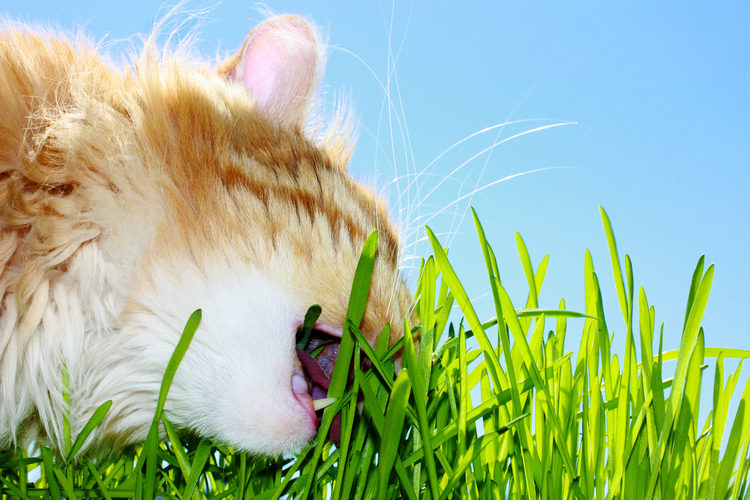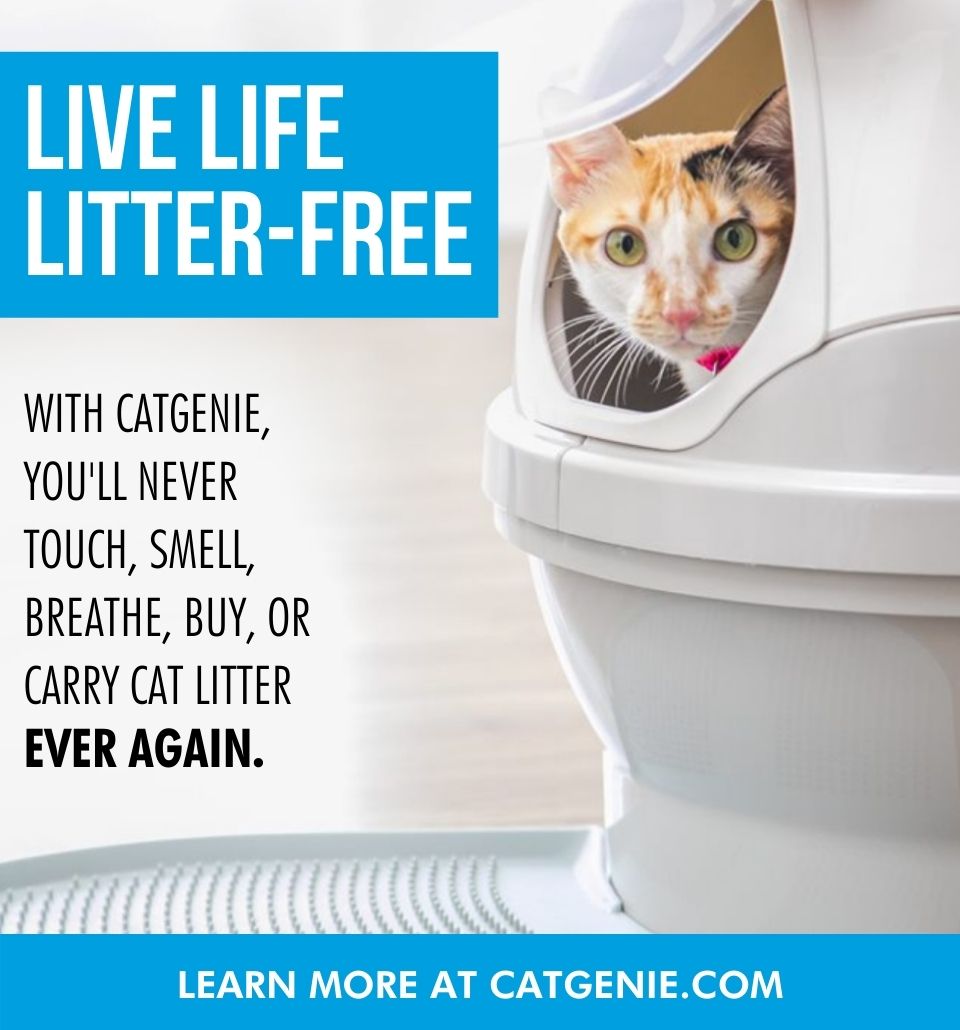If your feline friend has the opportunity to escape into the great outdoors every once in awhile, chances are you’ve seen them munching down on your lawn. While you may be concerned that they’re trying to live out a secret desire of being a cow, eating grass may be your cat’s way of self-medicating using only all-natural ingredients. Let’s take a look at why kitties may occasionally choose to nibble greenery.
Out With the Old
 Since your cat is a carnivore and not a cow, even if they try to graze like one, they do not possess the enzymes to digest grass. This means the grass that makes it to the stomach is usually thrown back up within a short time of your cat eating it. Snacking on greens could be a cat’s way of getting rid of other indigestible material, including hairballs, and if your cat is a hunter; bones, feathers and fur.
Since your cat is a carnivore and not a cow, even if they try to graze like one, they do not possess the enzymes to digest grass. This means the grass that makes it to the stomach is usually thrown back up within a short time of your cat eating it. Snacking on greens could be a cat’s way of getting rid of other indigestible material, including hairballs, and if your cat is a hunter; bones, feathers and fur.
Bulking Up His Fiber
Grass would definitely be considered a high fiber food in any diet plan, and we all know that fiber helps to promote digestive motility and health. Grass that makes it past your cat’s stomach and into the lower GI tract helps to move anything eaten out the other end. For kitties that experience hairball-caused and other types of constipation, grass can work as a natural laxative to get the process moving without the use of medications or enemas.
Balancing Her Diet
The juice of grasses contains folic acid, a B vitamin that is essential for cellular growth and the production of red blood cells. Low levels of folic acid can lead to anemia and improper growth. Adding a few blades of grass to their diet may be your cat’s version of a green smoothie.
Nervous (or Curious) Eating

Our kitties may turn to eating grass to help alleviate anxiety or to feed a nervous habit. Just like people that become constant gum chewers, some cats can become orally fixated and start to chew on blankets, toys, and plants. Look for something out of sorts for these kitties, such as a recent move or a new roommate, that might have them on edge and needing a little stress relief through snacking.
Cats are curious by nature and that curiosity can extend to their palate as well. Some kitties will munch grass, or other greenery, as a way of exploring their world. Also, as we said before, cats are obligate carnivores, meaning they consume an almost 100% meat diet, but those cats in the wild still get their greens by way of what their prey ate. Domestic cats may, on some level, be craving those veggies that they no longer get from hunting.
Is Eating Grass Bad?
As a general rule, no. It’s perfectly natural for cats to nose around in your lawn if they get the chance. What isn’t natural is if they are seeking grass or plants everyday. This could be an indication that something is terribly wrong with their digestive system and should see a veterinarian right away. In addition, it’s not okay if you are unable to supervise your cat’s grazing. This puts them at risk for consuming plants that have been treated with toxic chemicals such as fertilizers or herbicides. Also be sure to keep your kitty from chewing on toxic houseplants and flowers. As a healthy alternative to those toxic houseplants, consider planting your kitty his own small patch of cat grass.
For most cats, eating grass is just another strange behavior to add to the list. While it may be a cat’s intuitive way of regulating their bodies, it’s usually nothing to be concerned with. You can safely cultivate this behavior by making sure your kitty can’t sample anything toxic or by providing her with safe alternatives. Be sure to contact your veterinarian if your cat’s consumption of grass becomes more than just an occasional hobby or if she ingests something potentially dangerous.






